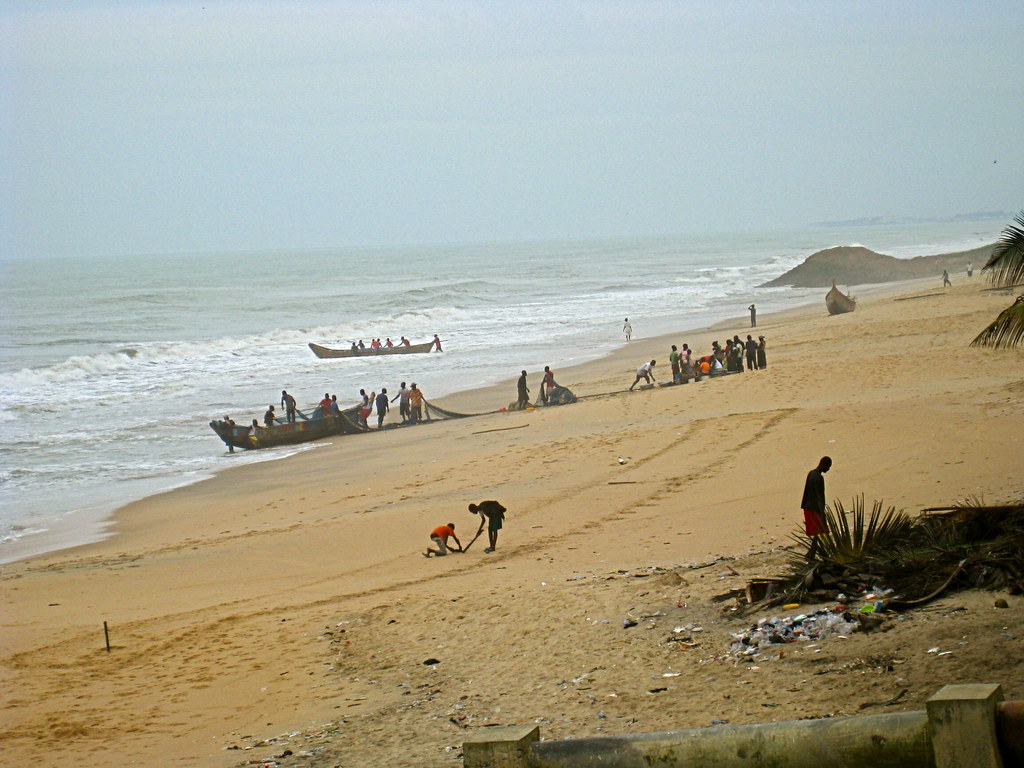Somewhere in the world it is still Earth Day. Dating back to 1970, this now global celebration marked the heightened awareness of manmade threats to the natural environment. The safeguards introduced at that time - the clean air, clean water, and endangered species acts in the USA - have faced decades of opposition from major industrial interests and now (not even 50 years later) the possibility of scaling back or disintegration. In what many of us would consider a more enlightened age - we have been studying environmental phenomena for decades - it's astounding that there is still this war on nature and the crucial services that it provides and which humanity depends on.*
 |
| Fishermen in Ghana negotiate rubbish-ridden beaches |
But I would argue that much of the
environmental activism comes from a place of privilege (I include myself
here), and I wonder how much we are successfully giving voice to those
whose health, happiness, and livelihood are much more intimately tied to
the condition of the natural environment. Sure, we all suffer if the
air is unbreathable, and eventually most everywhere in the world will
suffer the negative consequences of climate change, but oftentimes the
hardest hit by polluted drinking water or habitat conversion or
extensive droughts are those least capable of taking action or raising
an outcry.
I bring this issue up on Earth Day, because I'm still of the opinion that the poor and marginalized make it into environmental discussion too infrequently ... and in development circles environmental health doesn't come in as a necessity that underlies food, water, income, and other usual indicators of poverty. A recent article in the Conversation called this issue into focus, introducing the concept of "environmentally-adjusted measures of multidimensional poverty". It suggests that we are actually overestimating the impact of increases in GDP and other econo-centric measures of growth and progress. This is not to say we shouldn't celebrate the strides made in reducing poverty and hunger (or as #EarthOptimism is highlighting, in conservation), but we should also be wary of getting too complacent and continue to strive toward recognizing how interconnected is the wellbeing of nature and humanity.
This blog post is just a week before participating in the Live Below the Line Challenge. If you have a moment, please consider donating to the charity sponsoring this effort to raise awareness and support education.
Live Below the Line 2017 Posts:
Related post: Valuation for Poverty Alleviation (2015)
* Not to mention an increasing combativeness towards the scientific
evidence that supports the importance of the planet's natural systems.
No comments:
Post a Comment